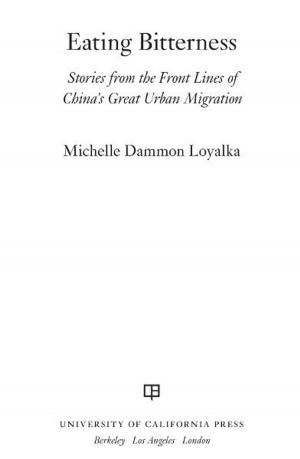Discipline and Debate
The Language of Violence in a Tibetan Buddhist Monastery
Nonfiction, Reference & Language, Language Arts, Linguistics, Religion & Spirituality, Eastern Religions, Buddhism, Social & Cultural Studies, Social Science, Anthropology| Author: | Michael Lempert | ISBN: | 9780520952010 |
| Publisher: | University of California Press | Publication: | April 30, 2012 |
| Imprint: | University of California Press | Language: | English |
| Author: | Michael Lempert |
| ISBN: | 9780520952010 |
| Publisher: | University of California Press |
| Publication: | April 30, 2012 |
| Imprint: | University of California Press |
| Language: | English |
The Dalai Lama has represented Buddhism as a religion of non-violence, compassion, and world peace, but this does not reflect how monks learn their vocation. This book shows how monasteries use harsh methods to make monks of men, and how this tradition is changing as modernist reformers—like the Dalai Lama—adopt liberal and democratic ideals, such as natural rights and individual autonomy. In the first in-depth account of disciplinary practices at a Tibetan monastery in India, Michael Lempert looks closely at everyday education rites—from debate to reprimand and corporal punishment. His analysis explores how the idioms of violence inscribed in these socialization rites help produce educated, moral persons but in ways that trouble Tibetans who aspire to modernity. Bringing the study of language and social interaction to our understanding of Buddhism for the first time, Lempert shows and why liberal ideals are being acted out by monks in India, offering a provocative alternative view of liberalism as a globalizing discourse.
The Dalai Lama has represented Buddhism as a religion of non-violence, compassion, and world peace, but this does not reflect how monks learn their vocation. This book shows how monasteries use harsh methods to make monks of men, and how this tradition is changing as modernist reformers—like the Dalai Lama—adopt liberal and democratic ideals, such as natural rights and individual autonomy. In the first in-depth account of disciplinary practices at a Tibetan monastery in India, Michael Lempert looks closely at everyday education rites—from debate to reprimand and corporal punishment. His analysis explores how the idioms of violence inscribed in these socialization rites help produce educated, moral persons but in ways that trouble Tibetans who aspire to modernity. Bringing the study of language and social interaction to our understanding of Buddhism for the first time, Lempert shows and why liberal ideals are being acted out by monks in India, offering a provocative alternative view of liberalism as a globalizing discourse.















